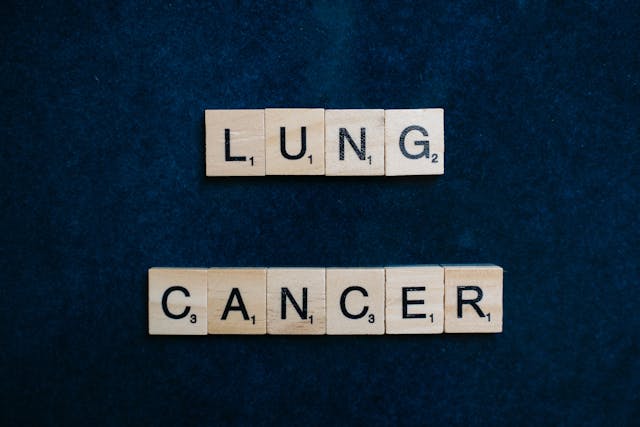During November, Lung Cancer Awareness will also be acknowledged. Many Americans are being diagnosed with this disease and one of the causes of it involves a form of passive smoking called secondhand smoke. Inhaling this type of smoke could lead to various health problems such as lung cancer, heart attacks, stroke, and other ailments. But once you accidentally inhale this, let’s examine exactly how long secondhand smoke stays in your system, ways you can detox your lungs after exposure, and how you can lower your risk of exposure.
What is Secondhand Smoke?
Before we learn how long secondhand smoke stays in your body, let’s first know what it is. Secondhand smoke is defined as smoke you accidentally inhale when you’re near tobacco smoke. This means inhaling the endless smoke in the air from people smoking cigarettes, cigars, pipes, and other forms of nicotine. Secondhand smoke causes over 7,000 lung cancer deaths and over 33,000 heart disease deaths each year in the U.S. So even if you’re a non-smoker just spending some time downtown or anywhere else, you may likely find yourself around someone who does and inhale what they just smoked. It’s important to be careful of what you inhale around you because it could be harmful to your health down the line.

How Long Does It Really Stay in Your System?
Damage from the harmful effects of secondhand smoke could occur in as little as five minutes. Inflammatory and respiratory responses can occur almost immediately. However, research shows the duration of how long secondhand smoke could stay in your system could vary amongst a few factors including how much smoke was inhaled, the potency of the cannabis, and the person’s metabolism. Limited research shows that traces of tetrahydrocannabinol (THC) could be detected in a non-smoker’s body who’s been exposed to smoke for up to 24 hours. The timeline for nicotine and toxins to leave the body varies between the bloodstream, hair follicles, saliva, and urine.
How Does the Body Absorb Nicotine Toxins from Secondhand Smoke
As people inhale secondhand smoke all around them, their body starts to absorb nicotine toxins from it. Even minimal exposure to cannabis smoke can have detrimental effects. After five minutes of smoke exposure, your arteries start to become less flexible. The same thing happens to people who are smokers. After 20-30 minutes, your blood starts clotting and fat deposits in blood vessels could increase your risk of a heart attack or a stroke. Within two hours of being exposed to nicotine toxins, an irregular heartbeat can develop and trigger a heart attack. Now that you know how people become exposed to secondhand smoke and how long it stays in their system, could you really detox after being exposed? Let’s learn more about this.
Ways You Could Detox After Being Exposed to Secondhand Smoke
Did you know that there are several natural detoxification techniques you can implement to cleanse your lungs? Lung cleansing techniques could help people struggling with chronic respiratory conditions or who are constantly exposed to secondhand smoke. When a person stops smoking, this could improve their lung circulation and function within 2 weeks to 3 months. One good example of this involves draining mucus from the lungs by lying on your back, inhaling through your nose, and exhaling through your mouth. Postural drainage involves lying down in different positions to use gravity to remove mucus. Other ways of natural detoxification of your lungs are exercising, staying hydrated, and maintaining a balanced diet of anti-inflammatory foods.
Tips for Reducing You and Your Loved Ones Exposure
While you can naturally cleanse your lungs after exposure to secondhand smoke, the most important thing to do is to lower your risk of this happening to you. The best way to do this is to avoid being in high-smoking areas such as public places where smoking is allowed. Consider wearing a strong face mask while being outside. You can also utilize air purification for secondhand smoke. The best ones available remove particles and odors from not just secondhand, but thirdhand smoke, too. Blueair purifiers in particular are known for performing highly efficient removal of cigarette smoke in your homes.
Besides not putting yourself in smoke-heavy environments, it’s also important to encourage your loved ones to stop smoking. If you have any family or friends who are regular smokers, try to help them get into the habit of quitting. This will greatly raise your risk of secondhand damage being around the people you know the most. Remember it doesn’t take too long for nicotine toxins from secondhand smoke to absorb into your body.
If we’re all not careful, secondhand smoke could cause some unfortunate health problems such as heart attacks, stroke, and lung cancer. As we acknowledge Lung Cancer Awareness this month, let’s remember to not only take care of our lung health but also lower our risk of secondhand smoke entering our system.
Have you ever experienced the damaging effects of secondhand smoke exposure? How long did it stay in your system? Leave a comment in the box below about this topic when you have the chance. Also, as usual, be sure to like or share this post with the next person trying to protect their lung health.

